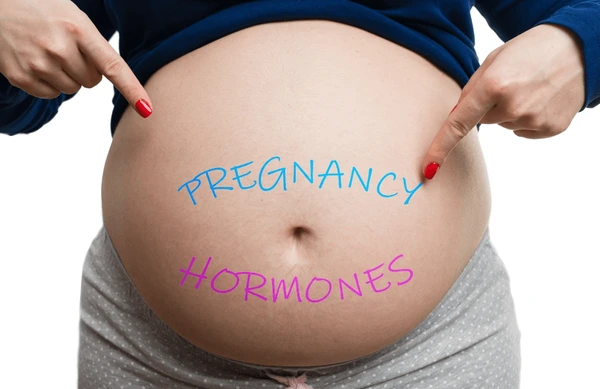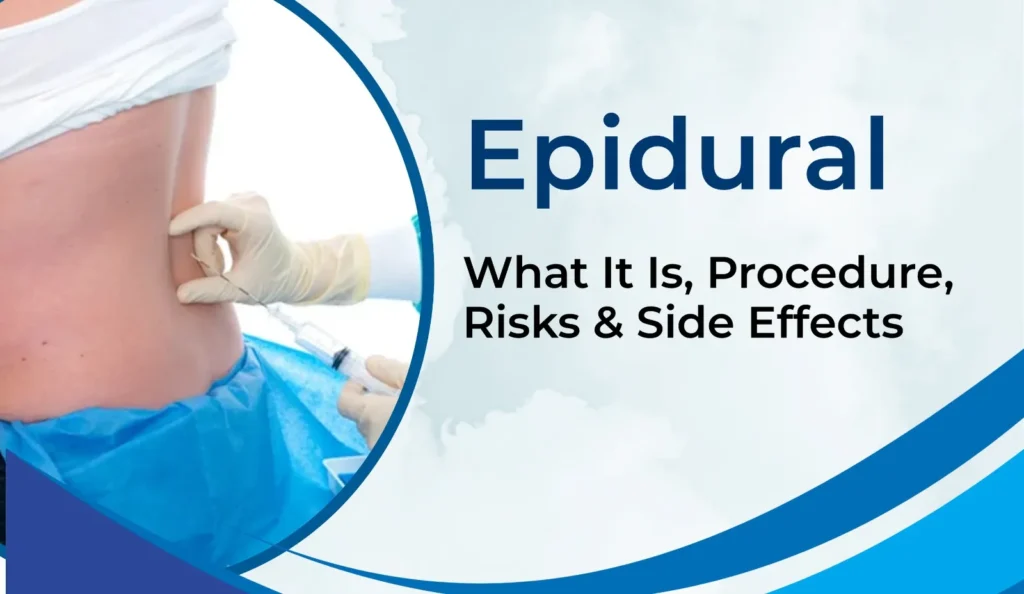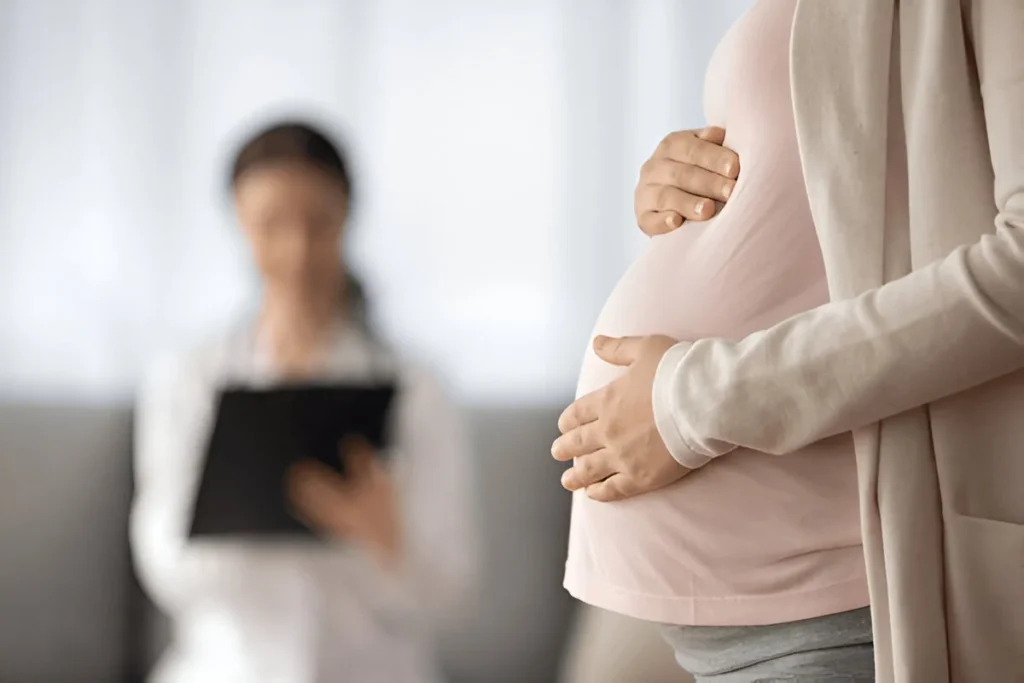-
Ganesh Talkies, Kolkata
Ganesh Talkies, Kolkata

Admins
06.10.2025
How to improve fertility naturally through diet and lifestyle changes. Learn science-backed food choices, habits, and expert insights from a reputed gynecologist. Understanding the Link Between Diet and Fertility Fertility is more than a matter of chance — it’s the outcome of a delicate balance between hormones, nutrition, and lifestyle. What we eat every day directly influences reproductive health, hormonal balance, and egg quality. For both men and women, nutrition plays a crucial role in improving the chances of conception naturally. Understanding the Link Between Diet and FertilityThe Science Behind Fertility and NutritionKey Nutrients That Support FertilityHow to Improve Fertility Through Diet and Habits1. Choose Whole Foods Over Processed2. Maintain a Healthy Weight3. Prioritize Healthy Fats4. Limit Caffeine and Alcohol5. Stay Hydrated6. Include Plant-Based Protein7. Mind the Glycemic IndexLifestyle Habits That Complement a Fertility DietFoods That Boost Fertility NaturallyCommon Fertility Myths About DietWhen to Seek Expert GuidanceFAQsNourishing Your Path to ParenthoodFueling Hope with Every Bite In today’s fast-paced world, many couples struggle with delayed conception. While medical interventions can help, small dietary and lifestyle changes can make a big difference. By understanding how to improve fertility through mindful eating, you can support your reproductive system naturally and boost your chances of a healthy pregnancy. The Science Behind Fertility and Nutrition Your diet affects every cell in your body — including the ones responsible for ovulation, hormone production, and implantation. Nutrients such as folate, zinc, omega-3 fatty acids, and antioxidants help regulate hormones, improve egg health, and reduce inflammation that can interfere with conception. Research has consistently shown that women who follow a nutrient-rich, balanced diet have better ovulatory function and higher pregnancy rates. Men, too, benefit from fertility-friendly nutrition through improved sperm count and motility. Key Nutrients That Support Fertility Here are some essential nutrients and their benefits when trying to conceive: Folate (Vitamin B9): Crucial for cell division and embryo development. Found in leafy greens, citrus fruits, and beans. Iron: Helps prevent ovulatory infertility. Sources include lentils, spinach, and fortified cereals. Omega-3 Fatty Acids: Found in walnuts, chia seeds, and fatty fish like salmon; improves egg quality and reduces inflammation. Zinc: Important for hormone regulation and egg maturation. Found in whole grains, pumpkin seeds, and nuts. Vitamin D: Supports hormonal balance and uterine lining health. Sun exposure and fortified dairy are good sources. Antioxidants: Protect eggs and sperm from oxidative stress. Found in colorful fruits like berries, pomegranates, and...

Admins
25.09.2025
Curious how pregnancy hormones affect women’s body health? Learn what changes to expect and when to consult a reputed gynecologist for safe guidance Pregnancy is a remarkable journey, but it also brings dramatic shifts in a woman’s body. Much of this transformation is influenced by pregnancy hormones. These chemical messengers regulate almost every aspect of the process— from sustaining the pregnancy to preparing the body for childbirth and breastfeeding. What Are Pregnancy Hormones and Why Do They MatterKey Pregnancy Hormones and Their ImpactHuman Chorionic Gonadotropin (hCG)ProgesteroneEstrogenRelaxinOxytocinProlactinPhysical Changes Triggered by Pregnancy HormonesEmotional and Mental Health InfluencesHow Pregnancy Hormones Affect Women’s Body Health Long TermEveryday Practices to Balance Hormonal ShiftsWhy Expert Guidance Is CrucialFAQs on Pregnancy HormonesGuiding Thought for Every Mother Understanding how pregnancy hormones affect women’s body health not only helps expectant mothers prepare physically but also provides reassurance during unexpected changes. With the right medical guidance, these changes can be managed for a healthier pregnancy and smoother postpartum recovery. What Are Pregnancy Hormones and Why Do They Matter Hormones act as the body’s internal communication system. During pregnancy, several hormones surge to: Support the growth of the baby. Maintain the uterine environment. Prepare the breasts for lactation. Adapt the body’s metabolism and circulation. These hormonal shifts are essential, but they also explain why women may experience mood swings, nausea, fatigue, or even glowing skin. Key Pregnancy Hormones and Their Impact Human Chorionic Gonadotropin (hCG) Produced in early pregnancy to support the corpus luteum. Plays a key role in sustaining progesterone production. High hCG levels often trigger morning sickness. Progesterone Relaxes smooth muscles, preventing early uterine contractions. May cause digestive issues like bloating or constipation. Supports the thickening of uterine lining for implantation. Estrogen Enhances blood flow to the uterus and placenta. Stimulates milk duct development. Contributes to skin changes and increased sensitivity. Relaxin Softens ligaments and joints, preparing the pelvis for childbirth. May cause backaches or changes in posture. Oxytocin Known as the “love hormone.” Plays a role in labor contractions and postpartum bonding. Encourages milk ejection during breastfeeding. Prolactin Stimulates milk production after delivery. Contributes to tender or swollen breasts during pregnancy. Physical Changes Triggered by Pregnancy Hormones Digestive system shifts – slower digestion, nausea, heartburn. Circulatory changes – increased blood volume, leading to swelling or varicose veins. Skin changes – pregnancy glow, stretch marks, or hyperpigmentation. Musculoskeletal adjustments – relaxed ligaments, causing flexibility but also instability. Breast development...

Admin
22.09.2025
Hello Reader! Welcome to the blog page of Dr. Megha Khanna, one of the best lady gynecologist in Kolkata. Childbirth is a beautiful and transformative experience, but it can also be physically demanding and painful. To ensure a more comfortable labor experience, many women consider an epidural. As the best lady gynecologist in Kolkata, I, Dr. Megha Khanna, aim to provide you with a comprehensive guide about epidurals—the procedure, benefits, risks, and potential side effects—so you can make an informed decision. What Is an Epidural?How Is an Epidural Administered?Benefits of an EpiduralRisks and Side EffectsHow does an epidural procedure differ for pain management vs steroid injections?Epidural for Labor Pain ManagementEpidural Steroid Injection (ESI) for Chronic PainWhat precautions should be taken before getting an epidural?Key Precautions Before an EpiduralAdditional ConsiderationsWho Should Consider an Epidural?How can patients minimize risks associated with epidural procedures?Ways to Minimize Epidural RisksHow does sedation impact safety during epidural procedures?Impact of Sedation on Epidural SafetyHow long does pain relief last after an epidural steroid injection?FAQ1. What is an epidural in childbirth?2. How is an epidural given?3. Does an epidural have risks?4. Can an epidural affect the baby?5. What are common side effects of an epidural?Final Thoughts What Is an Epidural? An epidural is a form of regional anesthesia used during labor to relieve pain. It works by numbing the lower half of your body while allowing you to remain fully awake and aware during childbirth. Unlike general anesthesia, an epidural does not affect your consciousness, making it a preferred choice for many expectant mothers. The main goal of an epidural is to reduce labor pain effectively while maintaining the ability to participate in the birthing process. This technique is also sometimes used for cesarean deliveries or other obstetric procedures that require pain control. How Is an Epidural Administered? An anesthesiologist performs the epidural procedure in a sterile environment. Here’s a step-by-step overview: Preparation: You will be asked to sit or lie on your side in a curled position to expose your lower back. Your vital signs are monitored throughout the procedure. Cleaning and Numbing: The lower back is cleaned with an antiseptic solution, and a local anesthetic is injected to numb the area. Catheter Insertion: A thin tube (catheter) is inserted into the epidural space in your lower back. This allows continuous administration of anesthesia. Medication Administration: Pain-relieving medication is given through the catheter, either as a continuous...

Admins
18.09.2025
Discover which prenatal tests are essential in early pregnancy with insights from a reputed gynecologist, ensuring a safe journey for mother and baby. Understanding Prenatal Tests in Early Pregnancy Pregnancy is one of the most transformative stages in a woman’s life. From the moment it begins, the body undergoes several changes, and monitoring both the mother and baby becomes a priority. This is where prenatal tests come into play. They are not just routine checkups; they are scientific tools that help detect potential complications, assess the baby’s development, and ensure the mother’s health is on track. Understanding Prenatal Tests in Early PregnancyWhy Early Prenatal Testing MattersEssential Prenatal Tests in Early Pregnancy1. Blood Tests2. Urine Test3. Ultrasound Scan4. Nuchal Translucency (NT) Scan5. Double Marker Test6. TORCH Panel7. Genetic Carrier ScreeningAdditional Tests Based on Medical HistoryBenefits of Following Early Prenatal TestingCommon Concerns About Prenatal TestsFAQsA Healthy Start Shapes the Journey But with so many tests available, expecting parents often ask: Which prenatal tests are truly essential in the first trimester? Why Early Prenatal Testing Matters The first trimester (up to 13 weeks of pregnancy) is a critical window for fetal development. Organs are forming, the placenta is developing, and important changes are taking place in the mother’s body. Early tests help to: Detect genetic or chromosomal disorders Identify maternal health risks Plan preventive measures for potential complications Provide reassurance to the parents In simple words, these tests are about prevention, early detection, and peace of mind. Essential Prenatal Tests in Early Pregnancy Here are the most important tests recommended by gynecologists: 1. Blood Tests Blood work is usually the first step during early pregnancy. These tests check for: Blood group and Rh factor Hemoglobin levels (to rule out anemia) Thyroid function Hepatitis B, HIV, and syphilis Immunity to rubella and chickenpox 2. Urine Test A urine test can detect infections and protein or sugar levels, which may indicate gestational diabetes or preeclampsia risk. 3. Ultrasound Scan The dating scan (around 6-9 weeks) confirms pregnancy viability, estimates the due date, and checks the heartbeat. This scan reassures both the doctor and the parents. 4. Nuchal Translucency (NT) Scan Performed between 11 and 14 weeks, this scan measures the fluid at the back of the baby’s neck. Combined with a blood test, it helps assess the risk of chromosomal conditions like Down syndrome. 5. Double Marker Test Usually paired with the NT scan, this...